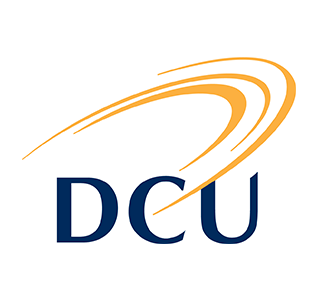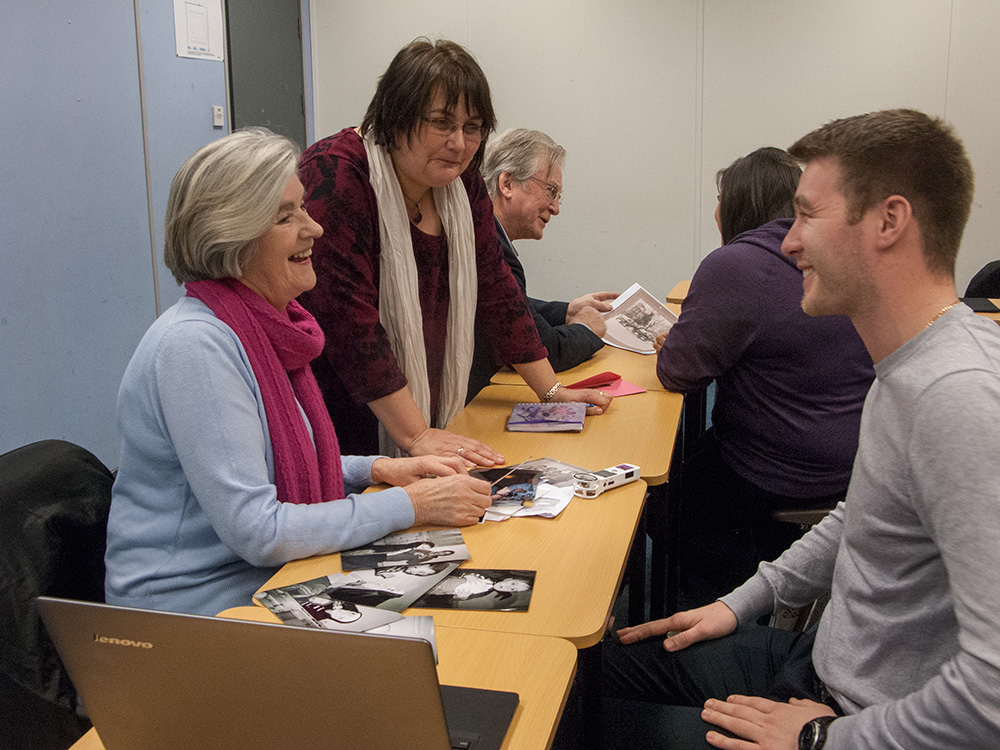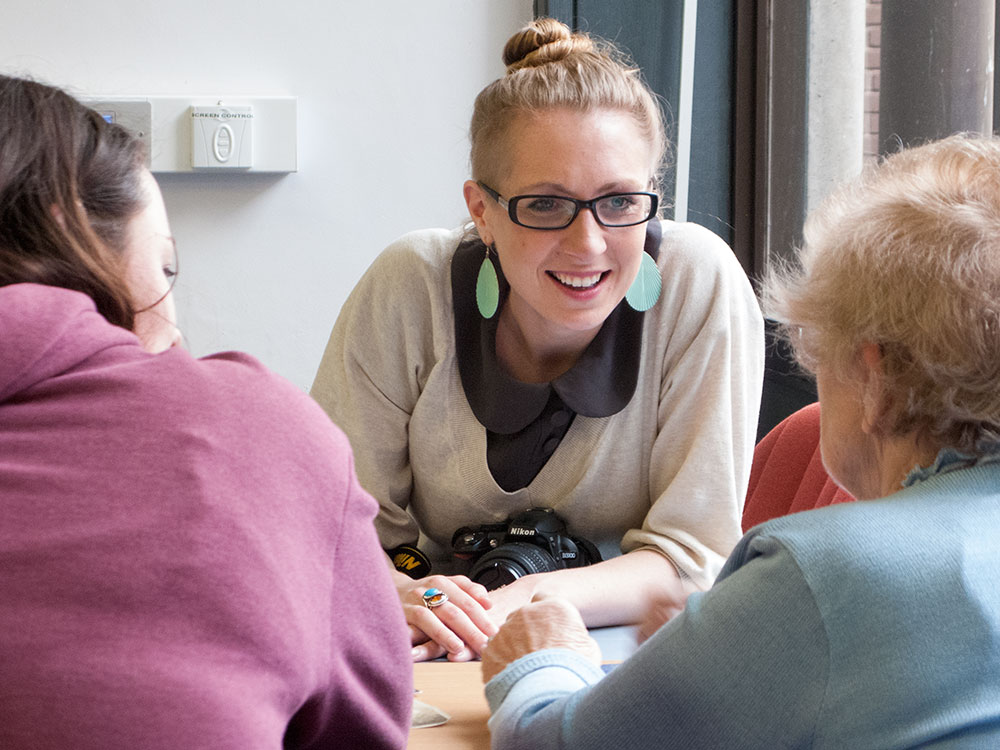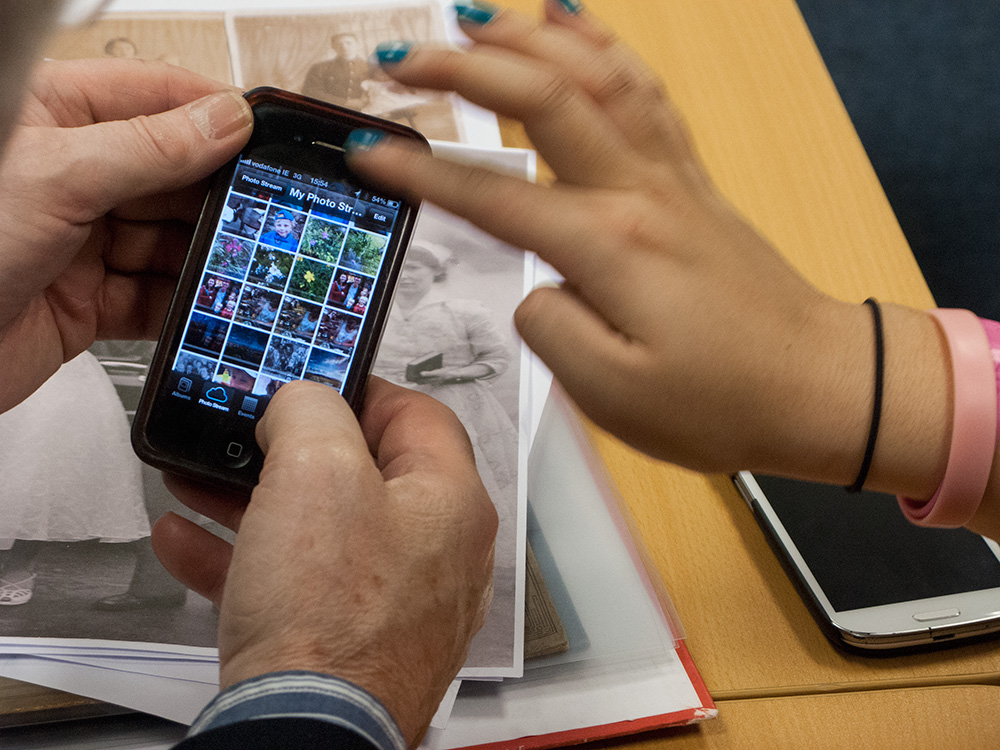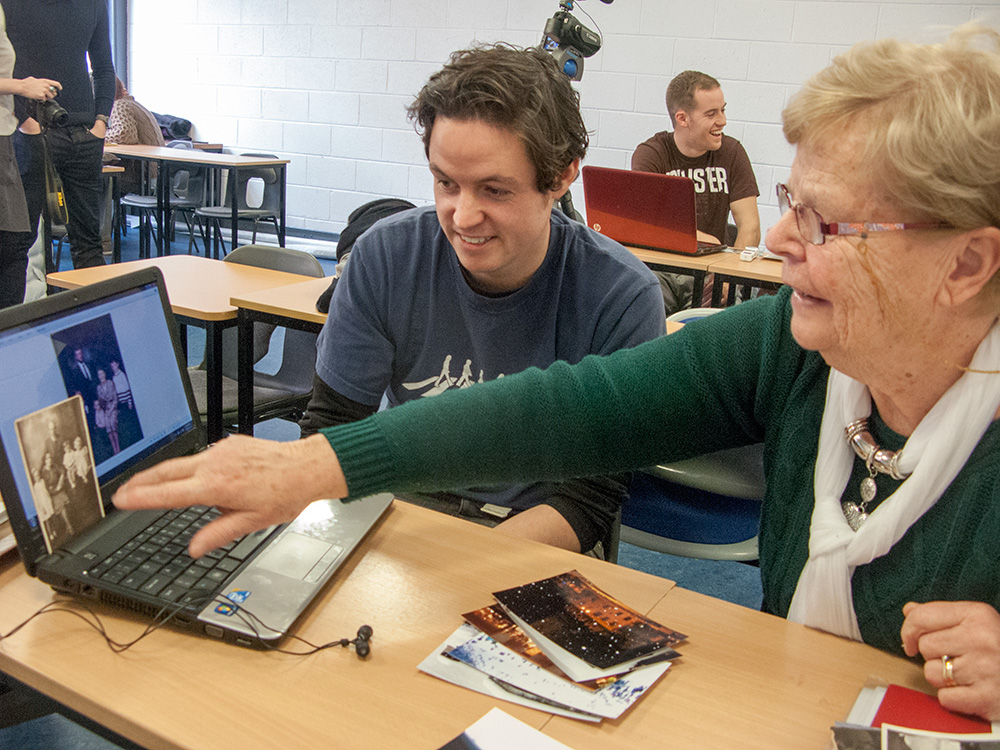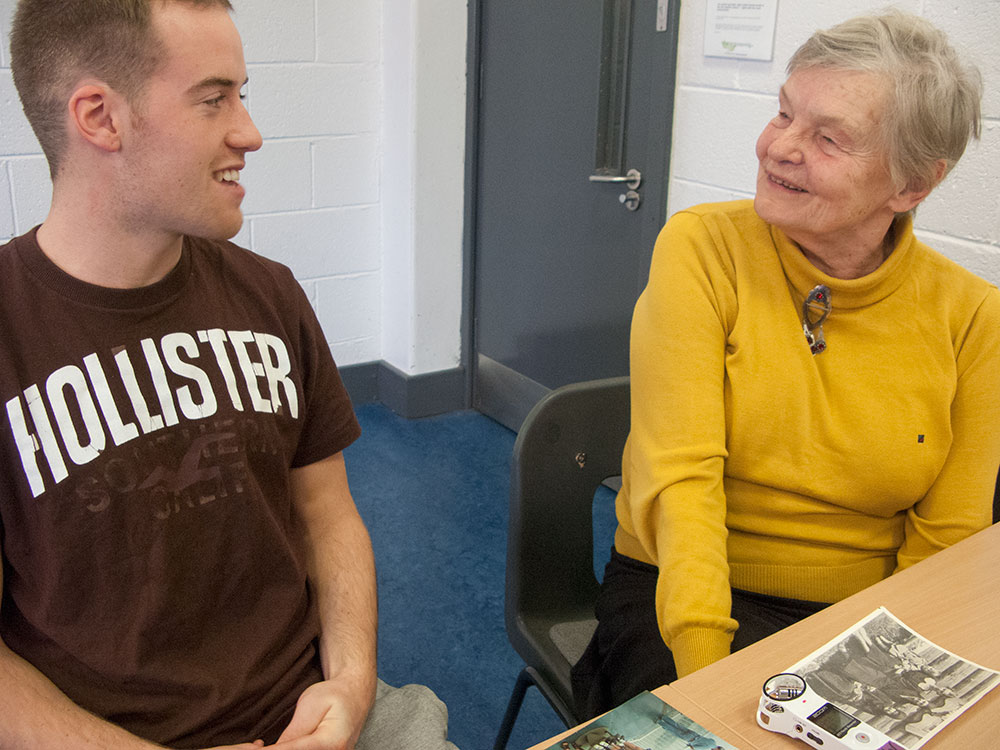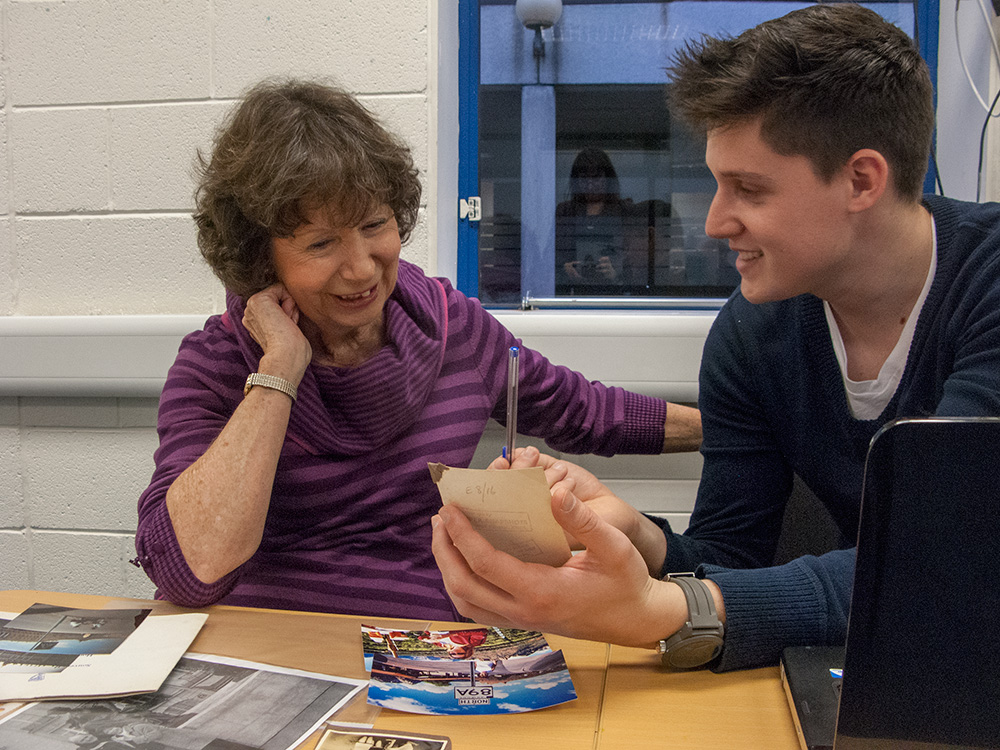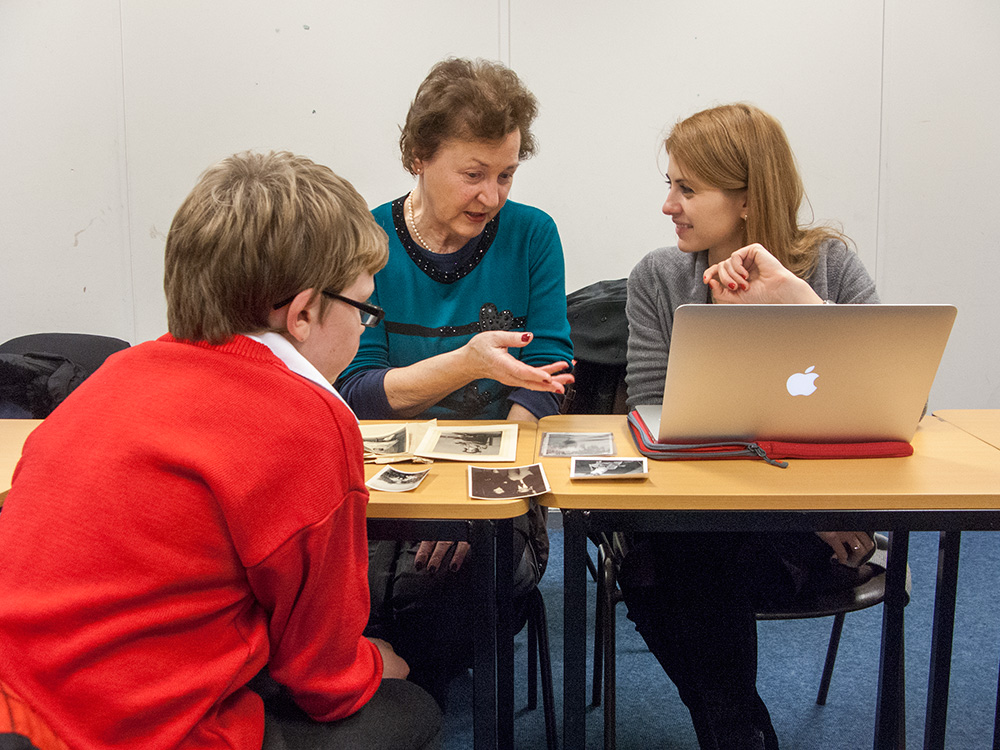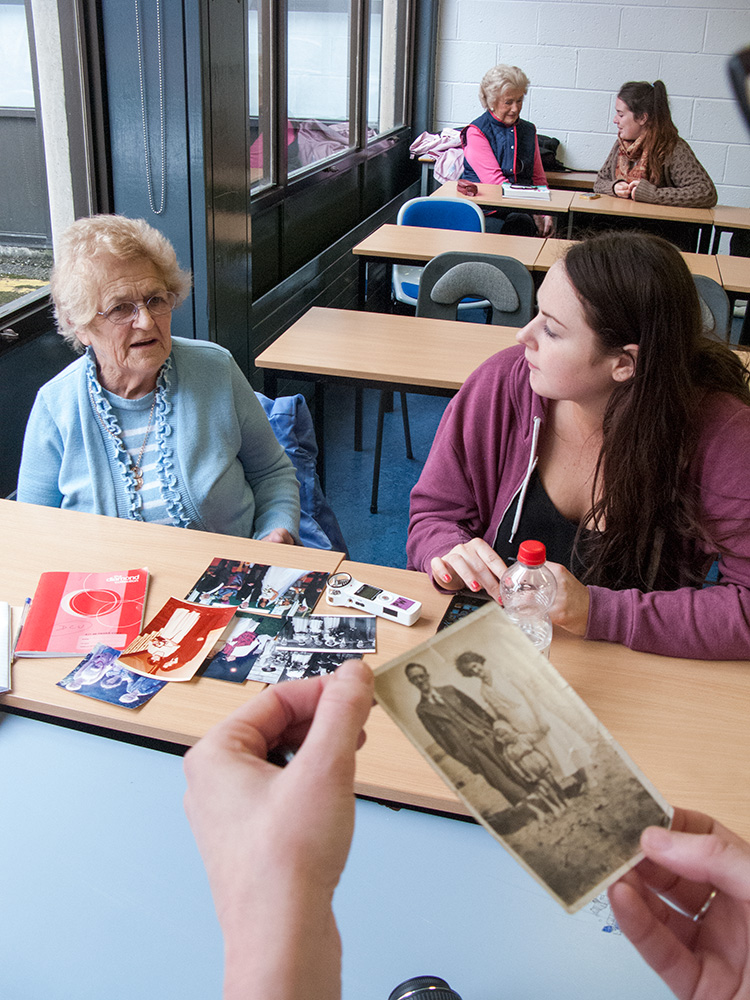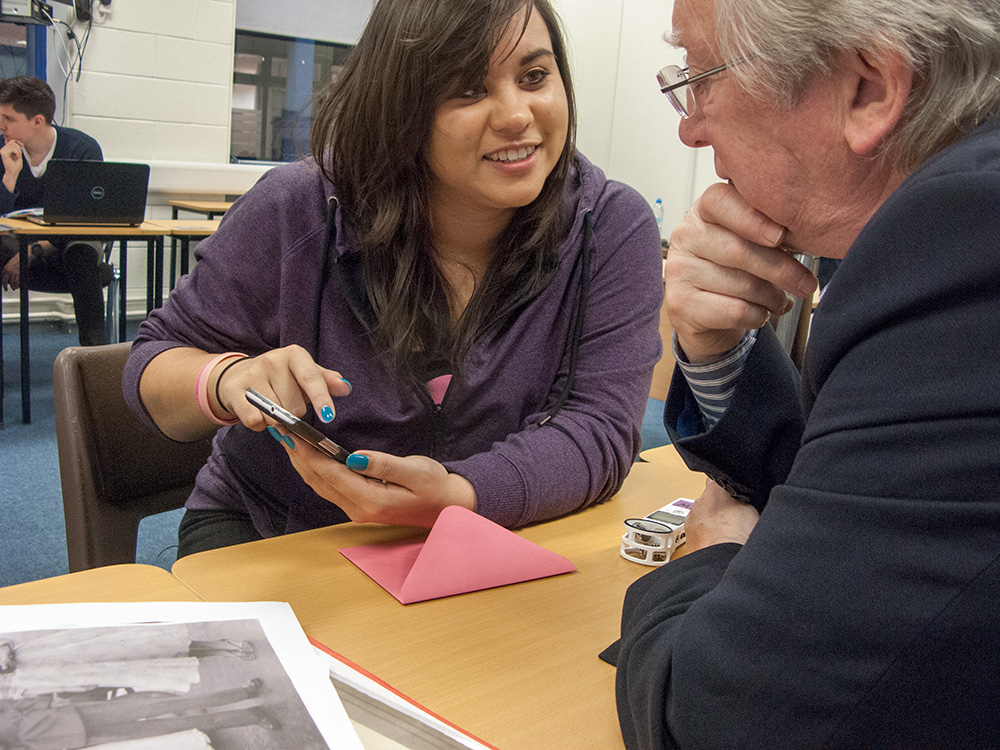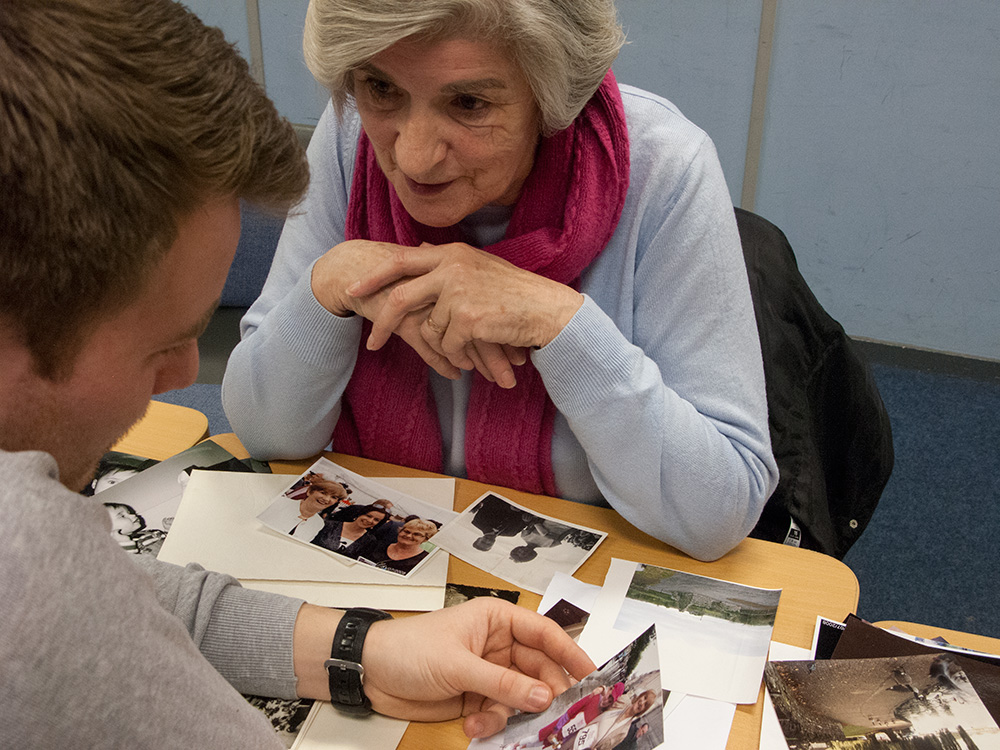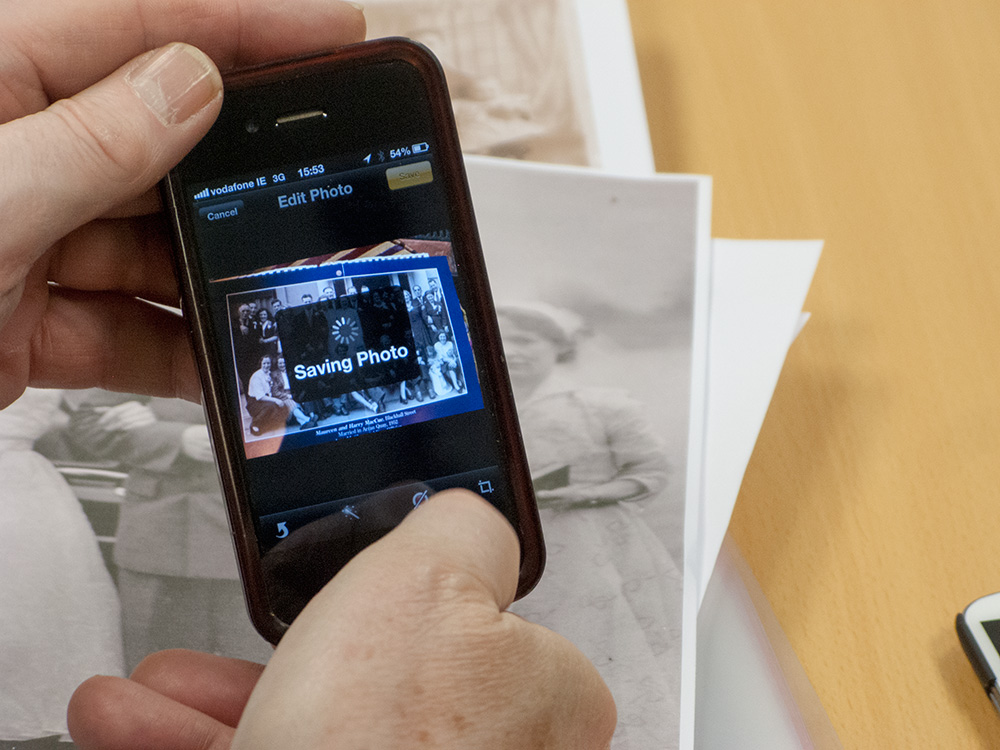Dublin City University – Intergenerational Learning
Click here to learn more about the grant and view all InSights grant winners

Collaborating on Intergenerational Stories - Dublin City University
Grantees: Dr. Cathy Fowley, Dr. Emer Ní Bhrádaigh, Dr. Trudy Corrigan
Titles: Lecturer in Entrepreneurship and Social Entrepreneurship Champion; Lecturer in Education; School of Education Studies
Participants in this project selected photos from their photo albums to bring to meetings that pair students and staff from the DCU community with older learners from the Intergenerational Learning Programme (ILP) in order to discuss their pictures and to reflect on and write stories about their experience. The ILP, originating as a doctoral project from Trudy Corrigan, brings together older people from the wider community along with DCU students to connect with one another on a personal level and learn together in a university setting.
After the meetings, the stories shared by the participants are published on the project blog, sharing the power of photography and storytelling with the world. In addition to this, new photographs were taken for the project on the theme of “your age” and a competition took place, each photo judged by photographers from well-known newspapers and advertising agencies. An exhibition of these photos takes place on campus, so that participants and interested viewers from the university and local community can see the photographs, read reflections, and discuss the results of the project.
Click here to learn more about Dr. Trudy Corrigan's doctorate thesis.
The Proposal:
What is your idea for the InSights project?
The twofold project will be open to all students and staff on the DCU campus, including older learners from DCU ILP.
● Regular meetings will pair older and younger people, who will bring and discuss their photo albums, sharing the photos which are most meaningful to them. They will then chose a pair of photographs, one from each album, and write a short story about the reasons for choosing the pictures. These will be posted on the
project blog.
● A competition of new photographs, taken for the purpose of this project, on the theme of “your age” – a picture which the photographers see as representing them at their current age, and can include but is not limited to portraits, landscapes, objects. A short text should accompany each photograph. The competition will be judged by photographers from well-known newspapers/advertising agencies, with prizes for each age category (student/staff/older learners).
What is the story that you will convey through the project? How do you hope people will think or act differently as a result of your project?
Our project will be both a reflection on the lifespan and experience and a dialogue between generations. The story will be one of differences and similarities through the juxtaposition of two photos from two generations, but also a story of empathy and beauty throughout the lifespan. The inclusion of young students, adults from DCU staff and older people in dialogue will make aging visible and celebrate it. The blog and on-campus exhibition will invite a reflection on aging and learning into a space usually linked to youth. We hope to foster understanding between generations – make younger people aware of the difficulties and benefits of age, and remind older people of the difficulties and benefits of youth. We will encourage dialogue and reflection on how this cross-generational connection can be used to identify and challenge underlying values and opinions in order to effect social change creating a better society for all ages.
How are you going to create an event that brings together people from different disciplines and backgrounds?
As with the Intergenerational Learning Programme, this project is aimed at staff and students from all four Faculties in DCU – Science and Health; Engineering and Computing; Humanities and Social Sciences; and Business. An initial information meeting (publicised widely to all staff and students) a seminar on photography, and showing of PhotoWings video material will precede small group meetings for the first part of the project, where younger/older pairs can start their research work.
Photos and emailed contributions will be posted on a managed project blog. This managed space will be complemented by a Facebook group/page where all can participate and engage in conversations on photographs and ageing. These online spaces will gather our participants at all times.
The final exhibition will take place on campus, in a space where participants and interested viewers from the university and the local community will see the photographs and read the reflections on them.
Grantees:
Dr. Cathy Fowley
Dr. Cathy Fowley has been part of the ILP team from its inception. As leader of the technology modules, she mentors students who run individual sessions and modules for older learners, and she lectures in lifewriting. Dr. Cathy Fowley created and runs lifewriting modules which aim to capture and illustrate powerful stories from the past in the authors’ own words, with a view to sharing those with younger people, thus fostering relationships based on empathy and understanding. Dr. Cathy Fowley holds a PhD on Internet research, her main research interests are in the fields of digital literacies, technologies for learning, and lifewriting. She is currently editing a book of life stories written by older people.
Dr. Emer Ní Bhrádaigh
Dr Emer Ní Bhrádaigh works as a Lecturer in Entrepreneurship in FIONTAR, Dublin City University. Her research interests include entrepreneurship in minority language communities, with particular focus on social entrepreneurship, and entrepreneurship education. Dr Emer Ní Bhrádaigh sits on the Project Support Committee of Clann Credo, a social finance investment fund, and on the Enterprise and Employment Committee of Northside Partnership. She mentored DCU’s successful team of students who represented Ireland in Enactus – an international 40-nation student social entrepreneurship competition. She is an evaluator for the European Commission on entrepreneurship education.
About the Intergenerational Learning Programme
Started as a doctoral project by Trudy Corrigan, the DCU Intergenerational Learning Programme is part of the School of Education Studies. It began in 2008 to engage older people from the wider community and DCU students in teaching and learning together in a third level environment. It started with a small number of classes on Saturday mornings, where older people were joined by DCU student volunteers to learn basic ICT skills, and gradually evolved, through engagement and dialogue.
Participation in third level education, whether for the first time or as a means of re-introducing academic learning into a new phase of your life, has long been denied to the older generation. Through their participation in the Intergenerational Learning Programme, some learners have overcome fear of technology, and become proud participants in the digital world; some have gone on to join undergraduate degrees, and others have discovered a talent for writing.
Dr. Trudy Corrigan
Trudy is a lecturer/researcher/coordinator of the DCU Intergenerational Learning Programme. Her interests are in lifelong learning, public participation and engagement, environment and sustainability, teaching and learning opportunities for youth development and designing educational opportunities that promote the cognitive stimulation of older people. Her research interests are in positive ageing and of the design and development of intergenerational spaces in higher education which supports the health and well being of both older and younger people.
What expertise and experience equips you to lead this project?
The Intergenerational Learning Programme is uniquely placed to bring together a large number of people from different schools, faculties and disciplines. In our five years of existence, we have a proven record of inclusion, and have seen students from all schools volunteer with our programme. Their feedback has always been positive, some of them claiming that their experience with us ranks with some of their best memories of university. Particular outcomes for the younger students were a reduction in their stress levels and the satisfaction of giving back to the older community. We will leverage this expertise and our reputation throughout the university to lead this campus-wide initiative. Our expertise in facilitation of intergenerational experiences and intergenerational learning will help us to guide the participants who will truly implement our project, with input from staff throughout the university.
What are your ideas for keeping the dialogue and community going?
At the end of this phase of the project, the local community will be maintained through a photography module in the Intergenerational Learning Programme, where we will build on what was learnt during the process. Moreover, we plan to extend this project, in collaboration with other Ashoka U Changemaker Campuses, through the continued use of the blog and social media presences. This could in time lead to a major exhibition of photographs of the lifespan seen through the lenses of different countries and cultures. While it is too late to integrate this project into this year’s curriculum we will work with relevant academics interested in the values of the project (social entrepreneurship, social change, aging, photography, communication, journalism) during the year to plan for the following academic year.


